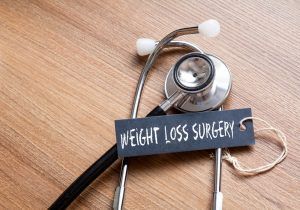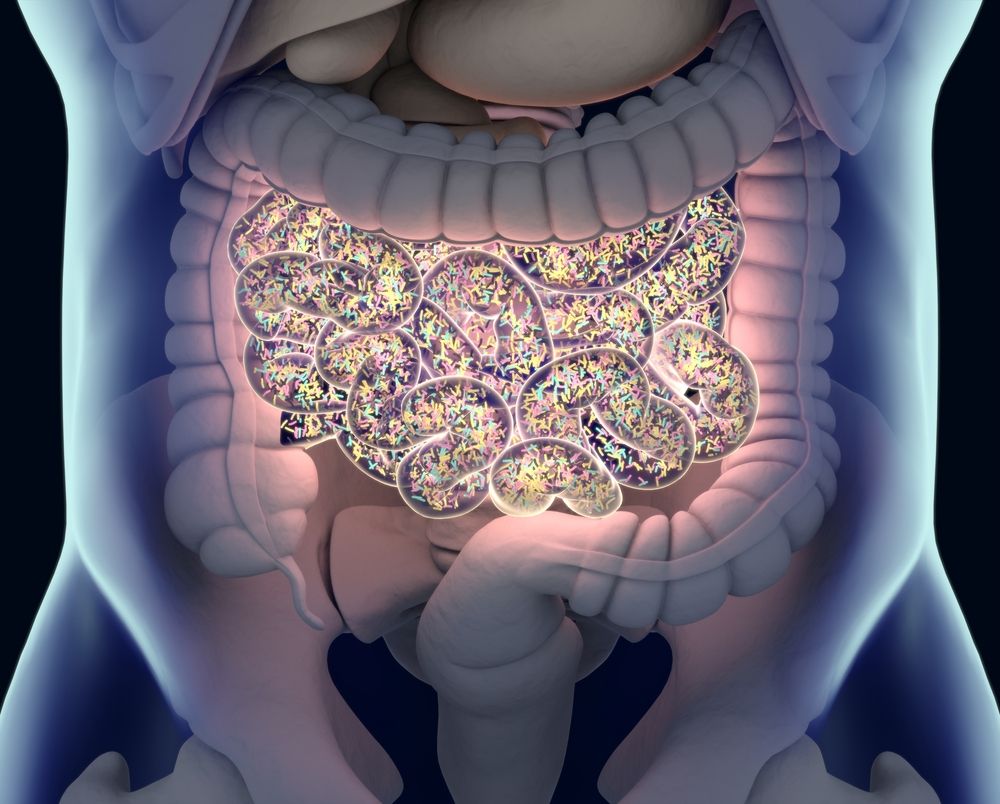Few people want to undergo a potentially unnecessary surgery. Thankfully, there are many alternatives to weight loss surgery. (Learn More)
Weight loss surgery can be risky, with a host of potential dangers. These surgeries require checkups for the rest of your life to make sure nothing has gone wrong. (Learn More)
There are a number of nonsurgical procedures that can help you lose weight without the risks associated with surgery. These include cryolipolysis, laser treatment, injectable deoxycholic acid, ultrasound fat reduction, and red light therapy. These procedures aren’t for everyone, and often, the results will be subtler than what someone struggling with severe obesity will need. (Learn More)
Prescription medications exist as a middle ground between nonsurgical procedures and surgery. While they carry risks and side effects, these medications can greatly reduce food cravings. Alert your doctor to any medications you are on and any medical or mental health issues you have before taking any weight loss medications. (Learn More)
Don’t underestimate the value of lifestyle changes. At the end of the day, a healthy diet will prompt weight loss, barring certain medical issues.
Ultimately, a lifestyle that includes a healthy diet and regular exercise is the ideal solution to obesity. Even if other medical weight loss methods are needed, diet and exercise need to be part of the equation. (Learn More)
Weight Loss Surgery Alternatives
Most people view bariatric surgery as last-resort weight loss option. While this assessment is not entirely accurate, it is at least understandable. Bariatric surgery carries a relatively serious set of risks (discussed below).
If you are considering gastric bypass surgery or another weight loss surgery, you are likely struggling with severe obesity. Talk to your doctor about your concerns and needs. Your doctor will weigh the pros and cons of any surgery for you, helping you to decide the best path forward. In some cases, your doctor may determine that surgery is an important part of your treatment plan that cannot be avoided.
Generally, doctors will avoid serious procedures (and their increased risks) unless it is determined that your weight presents greater risks to you. In essence, they balance how dangerous a treatment option might be versus how dangerous continuing to be overweight will be.
If you have weight-related issues, such as hypertension, high cholesterol, or type 2 diabetes, this will factor into the decision.
Downsides of Weight Loss Surgery
Weight loss surgery can cause a number of potential problems, some of which are quite serious. The following are some of the potential dangers of bariatric surgery:
- Technical failure
- Bleeding
- Abdominal pain
- Nausea or vomiting
- Excess loose skin
- Bowel obstruction
- Ulcers
- Anastomotic stricture
Not all of these side effects are equal, and not every patient will experience all of them. Among those who do experience side effects, there is a wide variance in the severity and danger of their symptoms.
Weight loss surgery is not considered extremely dangerous, but there are risks associated with any procedure.
These types of surgeries may be irreversible, such as when a large part of the stomach is removed during a sleeve gastrectomy. This is not universally true though. A gastric band can be put around the stomach via surgery to restrict the stomach, but later removed when it is no longer necessary.
Surgery is not something to be avoided out of hand, but it should only be performed on patients after careful consideration. Patients who get such surgeries will need lifelong monitoring, to ensure unseen complications that may arise do not spiral out of control.
While these surgeries certainly help people, even saving lives, patients should not exposed to unnecessary risk or burden.
Nonsurgical Procedures
Doctors can perform a variety of procedures on patients that are less invasive. These usually carry much less risk than traditional surgeries. These procedures have limits, and they tend to be suited for mild weight loss and body sculpting.
A few nonsurgical procedures include:
- This is the controlled application of extreme cold to dismantle fat cells and reduce fat pockets. The treatment is noninvasive, relatively painless (although potentially uncomfortable), and produces long-lasting results after only one or two sessions.
- Laser treatment. This process uses a special laser that passes through the skin, heating fatty tissues within the body and facilitating their breakdown. Another process is simultaneously used to keep the skin cool, so no long-lasting damage occurs on the surface. This process can cause a potentially uncomfortable heating of the treated area, but it is not usually painful.
- Injectable deoxycholic acid. This involves an acid the body uses naturally to break down fats for digestion. The acid is injected into problem areas. Currently, its use is highly specific. The FDA has only approved its use to break down fat beneath the chin, helping to get reduce a double chin.
- Ultrasound fat reduction. Using an ultrasound, a trained professional can send waves into the body, causing rapid pressure changes that break down fat cells without damaging surrounding tissue. Results are gradual, but the destroyed fat does not grow back (although further weight gain can still occur). Notably, this procedure requires essentially no rest or downtime.
- Red light therapy. This newer procedure uses a highly specialized lamp to send specific wavelengths of light through the skin. Unlike with a traditional laser treatment, this light does not actually destroy fat cells. Instead, it causes them to open slightly and to release some of their contents, reducing their size. This makes the procedure very low risk.
The released fat simply becomes waste in the body and is expelled as normal. The only people who generally need to avoid this process are pregnant women and people who have liver problems.
Results from these procedures won’t satisfy everyone. If your obesity is causing serious medical risk, these procedures alone probably won’t be enough. At the same time, they may be able to help, and they can help some people feel more confident and attractive as well.
Discuss whether these types of procedures are right for you with your doctor. They can all be relatively expensive, and they are generally not covered by insurance. They are also not without risk.
Prescription Medications
There are five prescription medications approved for long-term use by the FDA: bupropion–naltrexone, liraglutide, lorcaserin, orlistat, and phentermine-topiramate.
Each of these medications has their own risks and benefits, but there are a few points to keep in mind about all weight loss medications.
- The effect of these medications is usually to make you feel less hungry, with the exception of orlistat.
- All but orlistat are not approved for use in children. Orlistat is approved for use in children 12 and older.
- Many of these medications are not good for people with heart, liver, or mental health issues. They also can interact poorly with other drugs. For this reason, keep your doctor fully informed about your health and any drugs, including illegal drugs, you take.
Prescription medications carry risks. Once you’ve reached your target weight, you can often stop taking them or begin taking reduced doses.
Along with that benefit comes a caveat: Once you stop taking your medication, you are likely to gain at least some weight back. Talk with your doctor about ways to maintain weight loss if this is a potential concern.
Lifestyle Change
Diet and exercise should not be ignored when it comes to weight loss. While surgery and nonsurgical alternatives can greatly help with weight loss goals, diet and exercise make up the backbone of weight loss.
Simply addressing what you are eating will usually result in weight loss. Exercise with no diet change will not be enough to stop weight gain, but it can help. Exercise is also critical for overall health.
If you are going to diet, talk to a medical professional about the best way to do so. Your doctor may recommend a few sessions with a nutritionist so you can set a good foundation for a healthy diet.
If you are investing in weight loss via surgery, nonsurgical alternatives, or weight loss medications, you need to also make changes to your diet. Without these changes, you are likely to regain the weight at a later time.
References
Bariatric Surgery. (September 2010). Canadian Family Physician.
Lose Weight Without Surgery. UChicago Medicine.
Non-surgical Fat Reduction. The American Board of Cosmetic Surgery.
Sleeve Gastrectomy. (January 2018). Mayo Clinic.
If You’re Thinking About Trying CoolSculpting®, Here’s a Few Things You Should Know. Allergan.
UltraSlim Weight Loss Technology. Berkshire Mountain Chiropractic.
Diet & Weight Loss. Harvard University.
Choosing a Type of Weight Loss Surgery. (March 26, 2018). WebMD.
Prescription Medications to Treat Overweight and Obesity. (July 2016). National Institute of Diabetes and Digestive and Kidney Diseases (NIDDK).
How Effective Is Ultrasonic Liposuction? (November 2017). Healthline.











